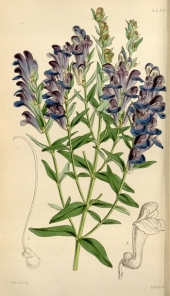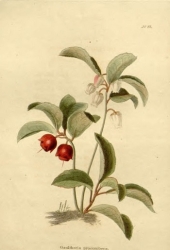

 5
5




 3
3




 6
6




 9
9




May You Walk in Beauty,
Sharol Tilgner ND
Sharol's books available at website
http://www.youarethehealer.org
https://www.facebook.com/youarethehealer.org/
 6
6




 3
3




Sharol Tilgner wrote:
Bitters are popular today. This is the 2nd post started today about them.
What is a "Bitter"?
The word “bitters” is used to describe herbs that are bitter to the taste. We all know what a bitter food tastes like, so you can easily identify any bitter tasting herb as being a "bitter". Besides indicating the taste of the herb, bitters also indicate a group of herbs that are stimulating and supportive to the gastrointestinal tract.
I am only one, but still I am one. I cannot do everything, but still I can do something; and because I cannot do everything, I will not refuse to do something that I can do. (E.E.Hale)
 3
3




"You'll have to judge for yourself [whether I have a sense of humour]. I have something I use for one. It serves my simple purposes." -Robert A Heinlein: The Moon is a Harsh Mistress Pg40
 3
3




 2
2




 1
1




 1
1




Nothing is foolproof to a sufficiently patient fool!
I hate people who use big words just to make themselves look perspicacious.
 1
1




Leslie Russell wrote:I always thought bitters were an alcoholic drink, maybe because the bottle was kept in the liquor cabinet when I was growing up. So my question is, is this an alcoholic beverage?
 1
1




 5
5




Check out Redhawk's soil series: https://permies.com/wiki/redhawk-soil
 2
2




Leslie Russell wrote:Thank you!! Yep, me and alcohol had to part ways some years ago, so no bitters for me 🤪
Perpetual Growth Regenerative Horticulture. Grow in peace.
 4
4




Leslie Russell wrote:Thank you!! Yep, me and alcohol had to part ways some years ago, so no bitters for me 🤪




Chris Kay wrote:
Quinine is something that anyone can make at home and something that is being manufactured each and every day in the form of Tonic Water. Tonic Water has the exact same Quinine that the drug being used to treat the [Coronu]
Quinine has many uses and applications. It is analgesic, anesthetic, antiarrhythmic, antibacterial, antimalarial, antimicrobial, antiparasitic, antipyretic, antiseptic, antispasmodic, antiviral, astringent, bactericide, cytotoxic, febrifuge, fungicide, insecticide, nervine, stomachic, tonic
If you ever feel a chest cold coming on or just feel like crap make your own Quinine. It is made out of the peelings of Grapefruits. Take this concoction throughout the day as a tea. Zinc enhances its effects,
All you need to do to make your very own Quinine:-
Take the rind of 2-3 grapefruits.
Take the peel only and cover it with water about 3 inches above the peels.
Put a glass lid on your pot if you have one....a metal one is fine if you don't.
Let it simmer for about 2 hours.
Do not take the lid off of the pot till it cools completely as this will allow the Quinine to escape in the steam.
When I followed this recipe for myself I immediately recognised the taste of the cooled brew from my youth at the bar of my Grandfather's Ukrainian Club. That should read as: authentic.
My hope is that this simply adds another bitter to your "bow".
 2
2




I want to be 15 again …so I can ruin my life differently.

| I agree. Here's the link: http://stoves2.com |




